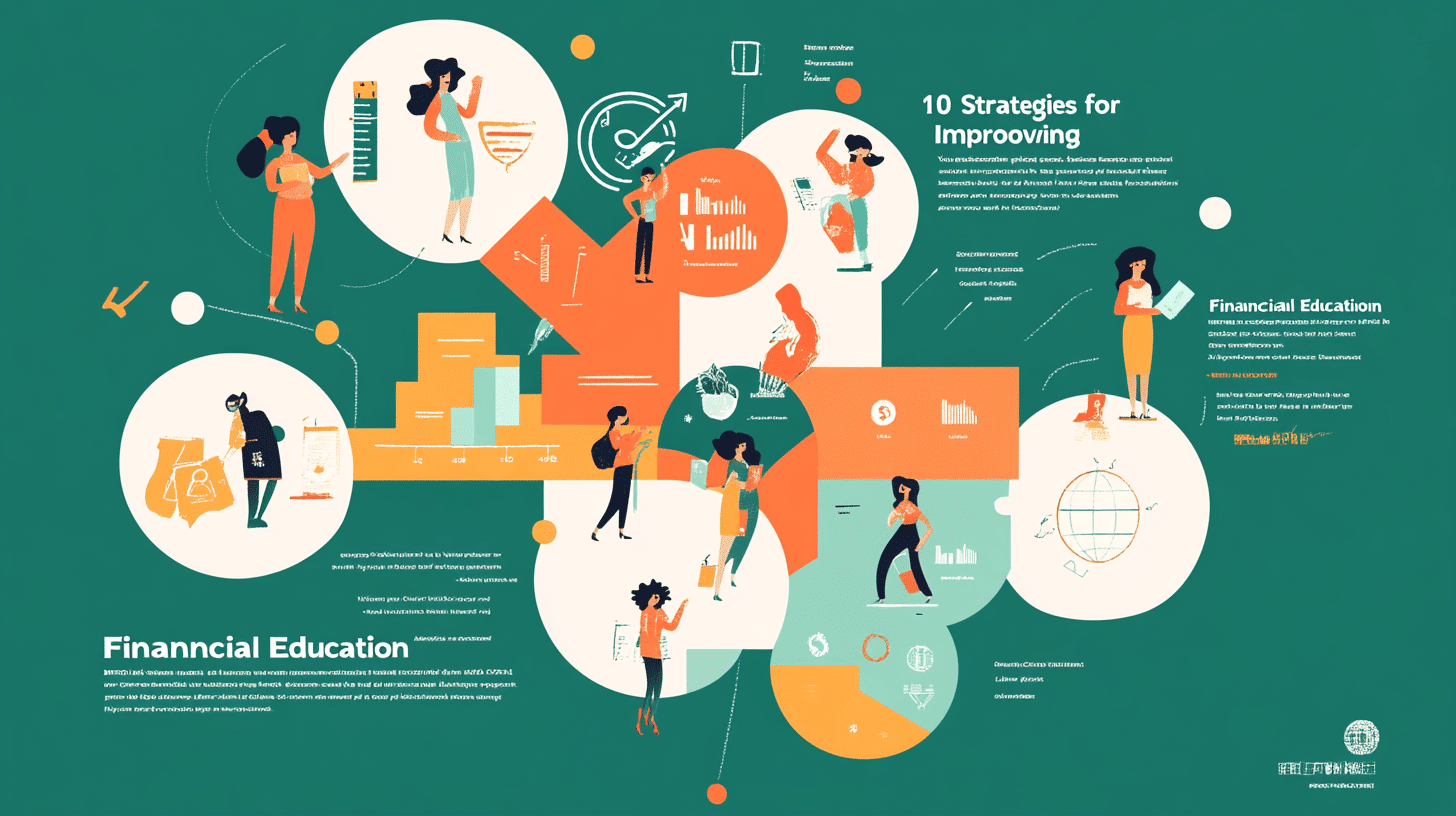A educação financeira é um tema crucial em qualquer fase da vida. Sabemos que uma gestão financeira eficiente pode transformar a restrição orçamentária em oportunidades de crescimento. Portanto, hoje, vamos explorar 10 estratégias práticas que podem ajudar você a economizar e a construir uma base financeira sólida. Ao adotar esses hábitos, você não só melhora seu controle financeiro, mas também garante mais tranquilidade no dia a dia.
1. Crie um Orçamento Mensal
Um dos primeiros passos para o sucesso financeiro é a criação de um orçamento. Um bom orçamento deve incluir todas as suas fontes de receita e despesas. Ao compreender exatamente para onde seu dinheiro vai, você pode identificar áreas de gastos excessivos e reavaliar prioridades. Existem vários aplicativos gratuitos e pagos que podem ajudar na criação do seu orçamento, tornando a tarefa mais fácil e organizada.
2. Estabeleça Metas de Economia
A fixação de metas pode ser um poderoso motivador para economizar. Pense em objetivos curtos, médios e longos prazos, como um fundo de emergência, uma viagem dos sonhos ou a compra de um imóvel. Defina um valor específico a ser economizado mensalmente e acompanhe seu progresso regularmente. Essas metas devem ser realistas e ajustáveis, conforme necessário.
3. Elimine ou Reduza Dívidas
Dívidas podem ser um grande obstáculo para a educação financeira. Faça uma lista de todas as suas obrigações e priorize o pagamento de dívidas com juros mais altos. Considere estratégias como a “bola de neve” (pagar as menores dívidas primeiro) ou “avalanche” (focar nas dívidas com maiores taxas de juros). Reduzir ou eliminar dívidas é fundamental para melhorar sua saúde financeira e abrir espaço para novas economias.
4. Poupe Antes de Gastar
Uma das melhores práticas financeiras é a “regra 50/30/20”, onde 50% da sua renda vai para necessidades, 30% para desejos, e 20% para economia e pagamento de dívidas. O ideal é que você separe essa porcentagem assim que receber seu salário. Isso garante que você economize antes de ser tentado a gastar.
5. Aprenda a Cozinhar
Cozinhar em casa em vez de comer fora é uma maneira significativa de economizar. Você sabia que fazendo suas próprias refeições pode reduzir suas despesas em 30% ou mais? Pesquise receitas fáceis e comece a preparar suas próprias refeições. Além do mais, cozinhar pode ser uma atividade divertida e criativa.
6. Desafie-se com um Mês Sem Gastos
Desafios de economia, como passar um mês sem gastar, podem ser uma excelente forma de avaliar seus hábitos de consumo. Durante esse período, evite compras desnecessárias e concentre-se em usar o que você já possui. Esse exercício pode ajudá-lo a perceber o quanto você pode viver com menos e ainda assim se sentir satisfeito.
7. Explore o Mercado de Segunda Mão
Em vez de comprar itens novos, procure alternativas em mercados de segunda mão ou brechós. Muitas vezes, você pode encontrar produtos em ótimo estado por uma fração do preço original. Além de ser mais econômico, essa prática é uma forma sustentável de consumo, ajudando a reduzir o desperdício e o impacto ambiental.
8. Aproveite Ofertas e Cupons
Antes de fazer uma compra, sempre verifique se há promoções ou cupons disponíveis. Existem aplicativos e sites dedicados a coletar esses recursos que podem oferecer grandes descontos, especialmente em produtos de varejo e alimentação. Ao usar esses métodos de economia, você pode reduzir significativamente seus gastos mensais.
9. Invista em Educação Financeira
Investir em sua educação financeira pode ter um grande retorno. Procure cursos online, livros e seminários que abordem gestão financeira, investimentos e planejamento de aposentadoria. O conhecimento é um dos melhores ativos para quem deseja alcançar a liberdade financeira.
10. Reavalie Seus Gastos Regularmente
Por último, mas não menos importante, faça uma revisão de seus gastos a cada três meses. Isso permite que você se mantenha em dia com suas metas estabelecidas e faça ajustes quando necessário. Questione se todos os gastos são realmente essenciais e procure maneiras de cortar custos.
Ao incorporar essas 10 estratégias em sua vida financeira, você começa a construir hábitos que o ajudarão a alcançar suas metas financeiras. Lembre-se, a educação financeira não é apenas sobre dinheiro, mas sim sobre como você toma decisões que impactam sua vida. Ao empoderar-se com o conhecimento e as ferramentas certas, você pode garantir um futuro mais seguro e próspero.
Conclusão
A educação financeira é uma jornada que requer paciência e persistência. Cada uma dessas estratégias pode ser adotada gradualmente e ajustada de acordo com suas necessidades e estilo de vida. A economia é uma prática diária, e ao implementar hábitos saudáveis, você encontrará um caminho mais claro para alcançar suas metas financeiras. Comece hoje mesmo e veja a diferença que uma gestão financeira consciente pode fazer em sua vida. Se você gostou deste artigo, não hesite em compartilhar suas dicas de economia nos comentários ou explorar outros conteúdos em nosso blog focados em finanças e desenvolvimento pessoal.



